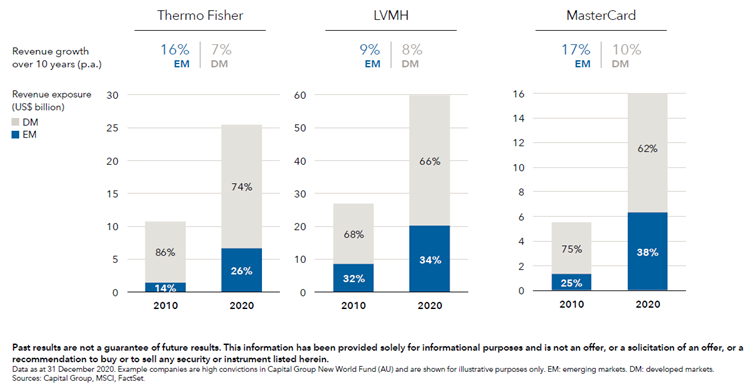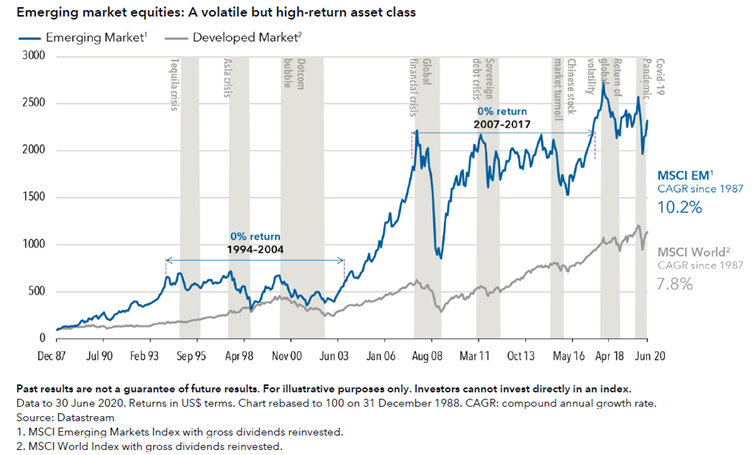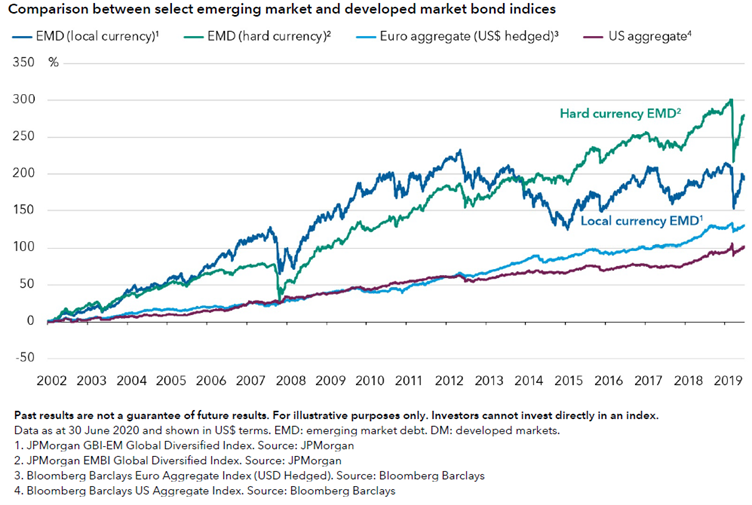Why should investors consider emerging markets?
In a recent interview, Matt Reynolds, investment director at Capital Group said: “Revenue contributions from emerging markets have been growing for some companies, outpacing revenue growth from developed markets. This is one of the key aspects to our judgement on the growth prospects of emerging markets."
“Thankfully, in a world where information flows are much greater than ever before, a lot of the baggage traditionally associated with emerging markets – too hard to make informed decisions; too much choice; the need for a thrill-seeker mentality – is gone.”
Reynolds reckons this strengthens the case for long-term investment exposure to emerging markets. I recently asked Matt Reynolds to explain the investment case for emerging markets. Read the full interview below.
How do you judge which markets are set for exceptional growth?
Historically, the case for investing in emerging markets has come with some baggage. It was almost always considered hard to get the right information to make informed decisions; there was too much to choose from, and emerging markets were not for the faint-hearted investor.
Thankfully, in a world where information flows are much greater than ever before, a lot of this baggage has been dispensed with, and today the case for considering long-term exposure to emerging markets continues to strengthen. Emerging markets today consist of more than 60 countries with varying fundamentals, different economic growth patterns and often widely diverging company valuations.
Still, while emerging markets have developed, they constitute only 12%(1) of the global equity market. Yet emerging markets are the key drivers of global growth, accounting for a significant share of the world’s GDP and global growth (2). A similar trend can be observed at the company level, where select global companies derive a large proportion of their revenues from emerging markets.
Revenue contributions from emerging markets have been growing for some companies, outpacing revenue growth from developed markets. This is one of the key aspects of our judgement on the growth prospects of emerging markets.
The growing importance of emerging markets to companies’ toplines

What is your prediction for the strongest emerging markets over the next two years?
At Capital Group, our approach is a little different to most because we don’t shape our decision-making around the next few years. We believe the right time horizon to frame this type of consideration is at least ten years. After all, history has shown that a long-term investment horizon creates long-term wealth.
Over a long investment horizon, emerging market equities have proven to be a high return asset class, but one that also comes with higher volatility compared to the rest of the world.
The chart below shows that the MSCI Emerging Markets Index was up 78% during the last emerging market rally, although the index has been prone to long flat periods and sharp downturns. Similarly, a comparison between select emerging market and developed market bond indices shows that emerging market bond indices have been able to generate attractive historical returns over the long term despite bouts of volatility.


What is a stock or sector that you believe is set to outperform and why?
Identifying individual stocks in emerging markets that may do well over the next period is akin to finding AND naming needles in a haystack. It’s fraught with danger, is futile and misses the point.
A better way for investors to think about exposure to emerging markets is to find dedicated strategies that are run by multiple portfolio managers with complementary styles. This can help to enhance the diversification of investments while limiting the risk associated with isolated decision-making, thereby reducing the volatility of the overall strategy.
Under the multi-asset category, emerging market equity and debt blended approach can provide portfolio managers with the flexibility to invest in the broadest opportunity set within emerging markets and take advantage of their inherent diversity. This approach also allows for the greatest diversification within an emerging market strategy and helps limit volatility.
Want more investment thinking from Capital Group?
For industry-leading insights and timely articles delivered to your inbox, click the 'FOLLOW' button here.
- Data as at 30 September 2020. MSCI Emerging Markets Index market value as a % of MSCI All Country World Index (ACWI). Source: MSCI
- Data as at April 2020. Source: International Monetary Fund: World Economic Outlook database
1 topic
1 contributor mentioned


